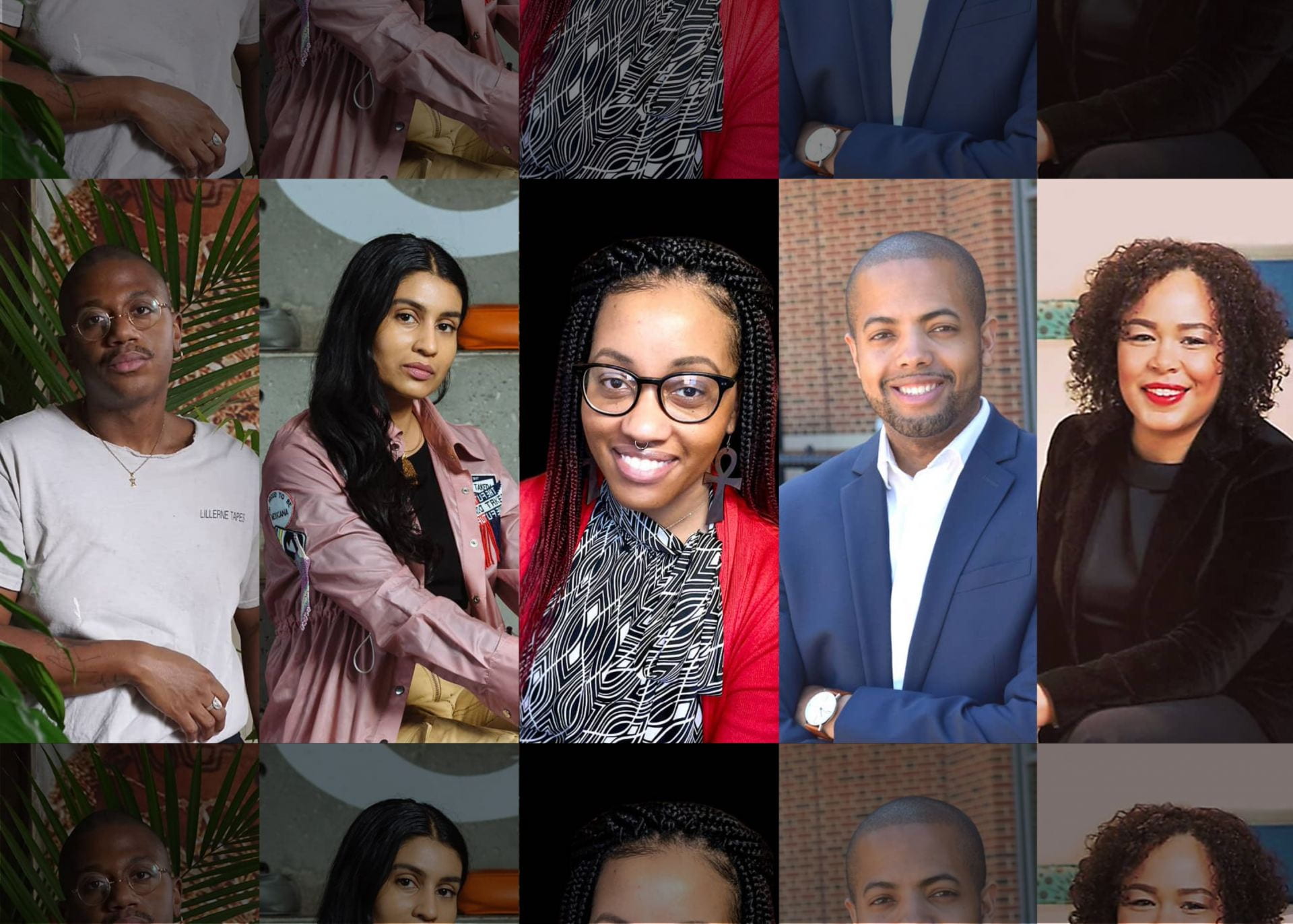
Photo collage of panelists for the Director’s Dialogue on Art and Social Change in order of left to right Cameron A. Granger, Baseera Khan, Dr. Shawnita Sealy-Jefferson, and Kyle Strickland and moderator Autumn Glover. Credit: Courtesy of the Wexner Center for the Arts.
Panelists urged viewers to unlearn privileges, challenge institutionalized racism and start at the root of the problem of racial issues during the Wexner Center for the Arts’ webinar Monday.
Melissa Starker, spokesperson for the Wexner Center, said the 2021 Director’s Dialogue of Art and Social Change looked into the relationship between public safety and public health from an arts angle. “How Do We Get Well? On Public Health and Safety” featured panelists Cameron Granger, Baseera Khan, Kyle Strickland and Shawnita Sealy-Jefferson and was moderated by Autumn Glover.
“It always centers on the crucial role that art and artists have by generating causal and thoughtful discussion around really important and pressing social issues,” Starker said.
Granger, an Ohio-based artist and activist, said his current experience as a Black person in predominantly white spaces has challenged him to think about ways that he can help his community while also navigating his own role in these spaces.
“I’m trying to figure out how can I use those platforms,” Granger said. “How can I use that access to support the people doing the work, because I can’t change anything just by me being the one individually. But hopefully I can kind of build those bridges and help people.”
During the event, one of the main discussion points was how society and individuals can create lasting change and how they should begin the process. Granger said he has found that the only way to start to create change is by getting to the root of the problem.
“It’s like diagnosing a patient,” Granger said. “You gotta learn the medical history before you can start to cure them.”
In addition to creating change on a large scale in society, Sealy-Jefferson, a social epidemiologist and assistant professor in Ohio State’s College of Public Health, said allies can help create change, but they must also begin to think about the ways in which they have perpetuated racism and begin to unlearn their privileges.
“Every single white person has unearned privilege,” Sealy-Jefferson said. “You didn’t earn all of the privileges that you have. Your ancestors also didn’t earn the privileges. So there’s gotta be some real active divestment of this unearned privilege.”
The event also covered how laws and policies have upheld institutional racism. Kyle Strickland, deputy director of race and democracy at the Roosevelt Institute and a Harvard Law School alumnus, said there needs to be a heavier focus on institutions upholding racism instead of blaming individuals and their actions.
“Instead of blaming people for their circumstances, instead of blaming people, individuals for our inequality, we need to look at these systems and institutions that continue to oppress people and to leave people behind,” Strickland said. “It’s this idea, this zero-sum game that somehow your circumstances are the fault of your own.”
Khan, a performance and visual artist based in Brooklyn, New York, said unlearning racism and biases has been seen as optional when it should be seen as mandatory.
“Do you all remember when you refused to learn calculus and algebra, but you had to do it anyway because it was mandatory,” Khan said. “I think if we can muster the energy to get through a few things, to understand systemic racism and actually what it is outside of just the term, I think that’s the pathway.”
A recording of “How Do We Get Well? On Public Health and Safety” can be accessed on the Wexner Center’s website and on their Vimeo page.
![Ohio Gov. Mike DeWine signed Senate Bill 1 — a higher education overhaul bill — into law Friday. [Ohio Gov. Mike DeWine speaks at the State of the State address in Columbus. Credit: Joshua Gunter via TNS]](https://www.thelantern.com/files/2025/03/20250204-AMX-US-NEWS-DEWINE-BUDGET-INCREASES-TAXES-FOR-1-PLD-384x253.jpg)

